$20.00 – $115.00
Mangjing is a caress.
From the first steeps, vanilla and savory forest aromas lift off the gaiwan lid. The palate is greeted with a demure entrance of lilac and red date oatmeal. Orchid aromatics express from a soup with low astringency. The session reliably yields a nutritive mineral profile throughout. Pure, gentle encouragement from the forest uplifts.
Part of the greater Jingmai Mountains, 芒景 Mángjǐng is an ancient community of small Bulang villages just south of the Jingmai Plateau, on 哎冷 Āi lěng Mountain. The people here have some of the longest history as tea stewards in the world.
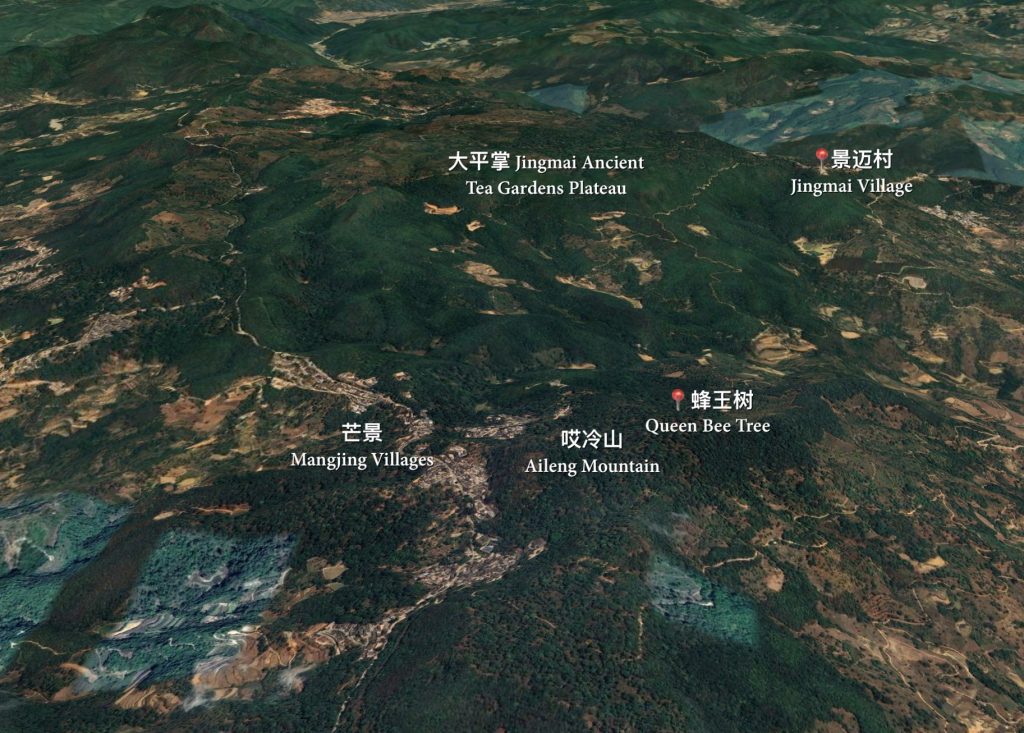
The Su household, the family of the village head Su Guowen, is located on the ridge, the pass between Jingmai and Mangjing. In April of 2024 we met the Su family through mentor and colleague Brian Kirbis of Theasophie. This established family is well-resourced in ancestral inheritance, overseeing many acres of ancient tree gardens and with extensive knowledge of the remote forest's wild tea landscape. We explored the area with Yimu, the grand-niece of Guowen.
First, a pilgrimage to see the 蜂王树 fēngwáng shù Queen Bee Tree, an ancient 50 meter high Banyan tree hosting around 70 beehives. Annual rituals are held in observance and worship to this sacred tree, and its natural processes are witnessed to serve as a harbinger for correlating seasonal events; a natural timekeeper for the Bulang people and their interactions with the natural world.
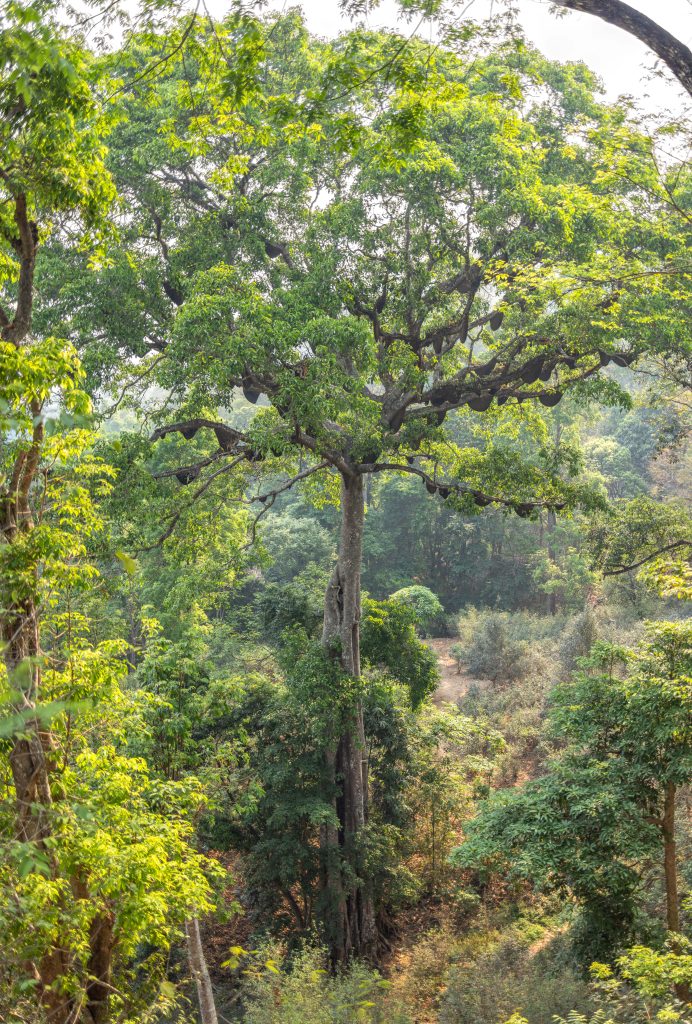
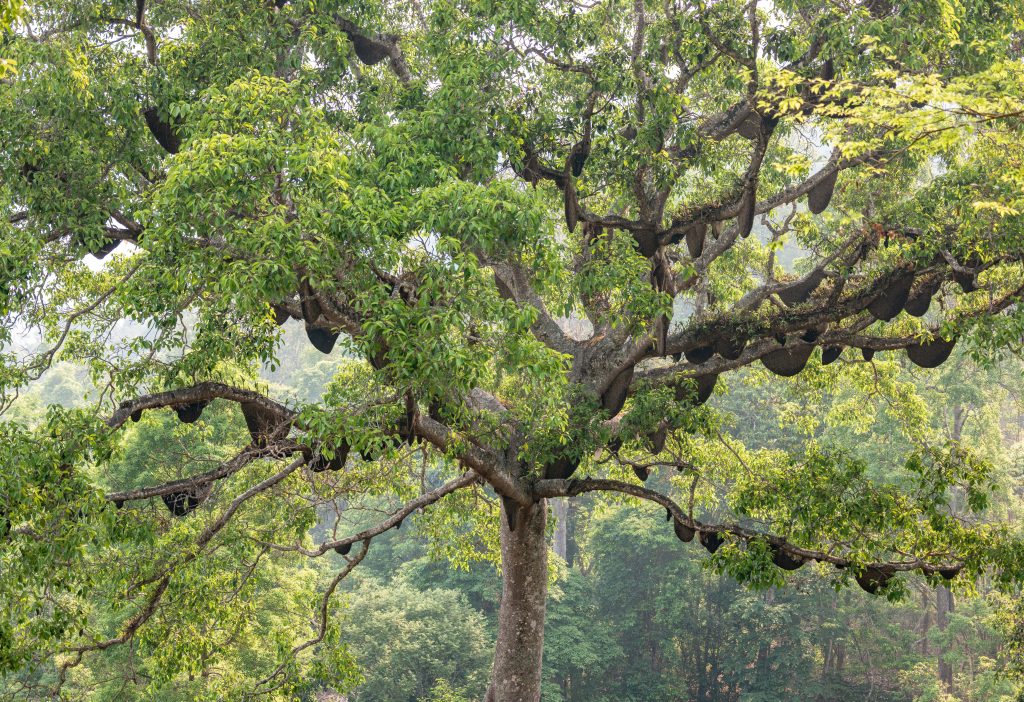
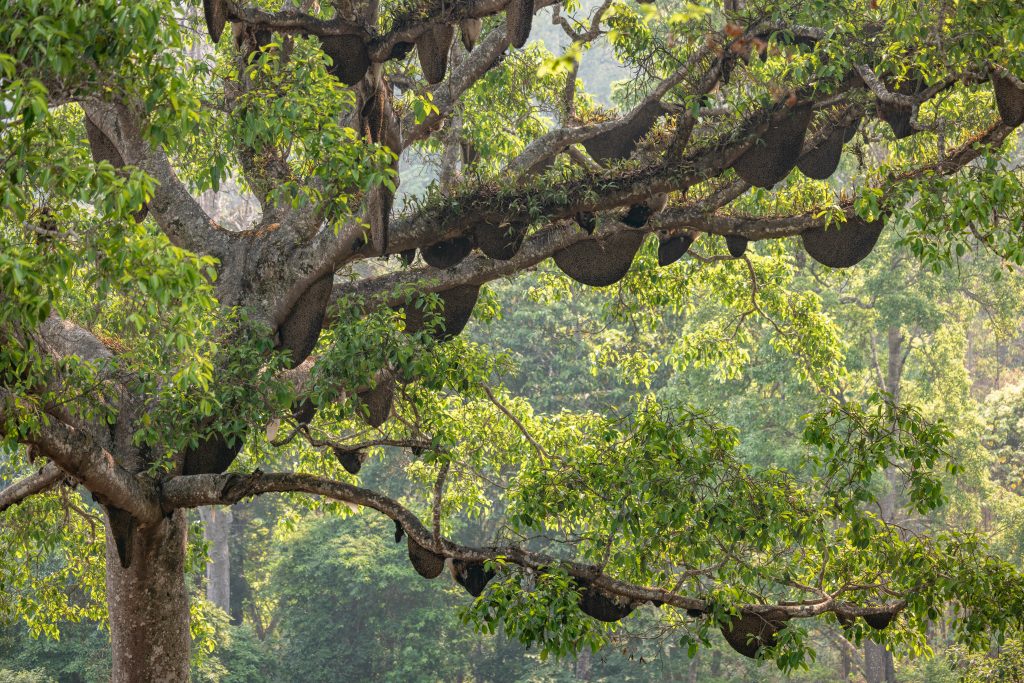
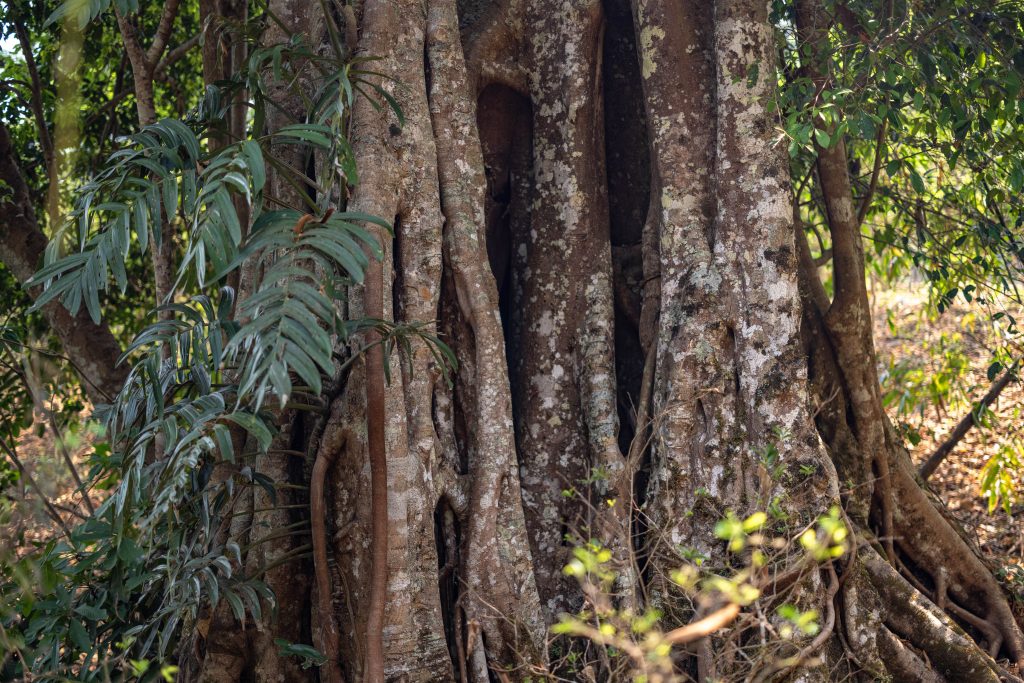
Around the base of the tree Yimu's family's ancient gardens were being harvested of what little fresh leaves were sprouting, already almost mid-April. During this historic drought, production for this family was down to 1/5 of what it usually was at that time.
If prolonged, droughts and other climactic instabilities may prove detrimental for the tea trees. The only silver lining to such a worrisome situation is that low rainfall produces fantastic tea and provides favorable weather conditions ideal for partaking in the advantages that 100% sun-drying the leaves gives. For drought flushes, flavor is more concentrated, much less watered down, and bodes well for aging.
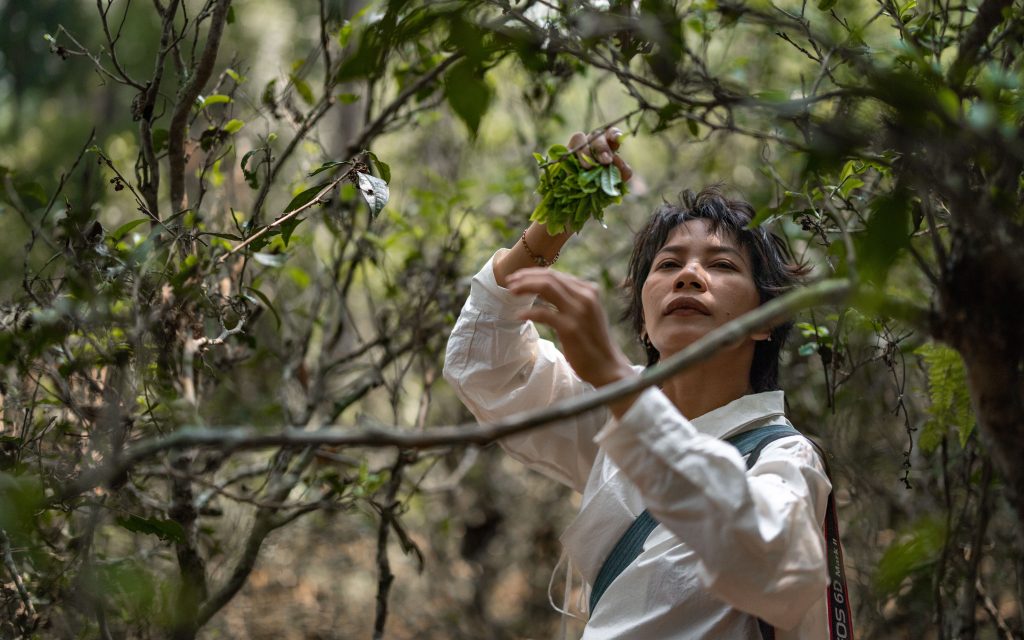
As a plant-medicine healer, Yimu's father knows the forest. With this knowledge, each spring the family has taken to also producing a tea from wild tea trees that are interspersed within the deeper forested landscape.
This year's production is a 1-1 blend of the Su family's ancient arbor tea under the Queen Bee Tree and their wild forest tea.
We hope you get to enjoy this tea.
This year's cake wrapper artwork theme, Water Creatures of the Mekong, feature fish, reptiles, and mammals that call the Mekong River (the part that runs through Yunnan is referred to as the Lancang River) home. A hand-inked drawing by Rosy Kirby of Lost Mountain Prints of one of these creatures grace the front of each cake, and this year's Mangjing tea features the Siamese Crocodile Crocodylus siamensis.
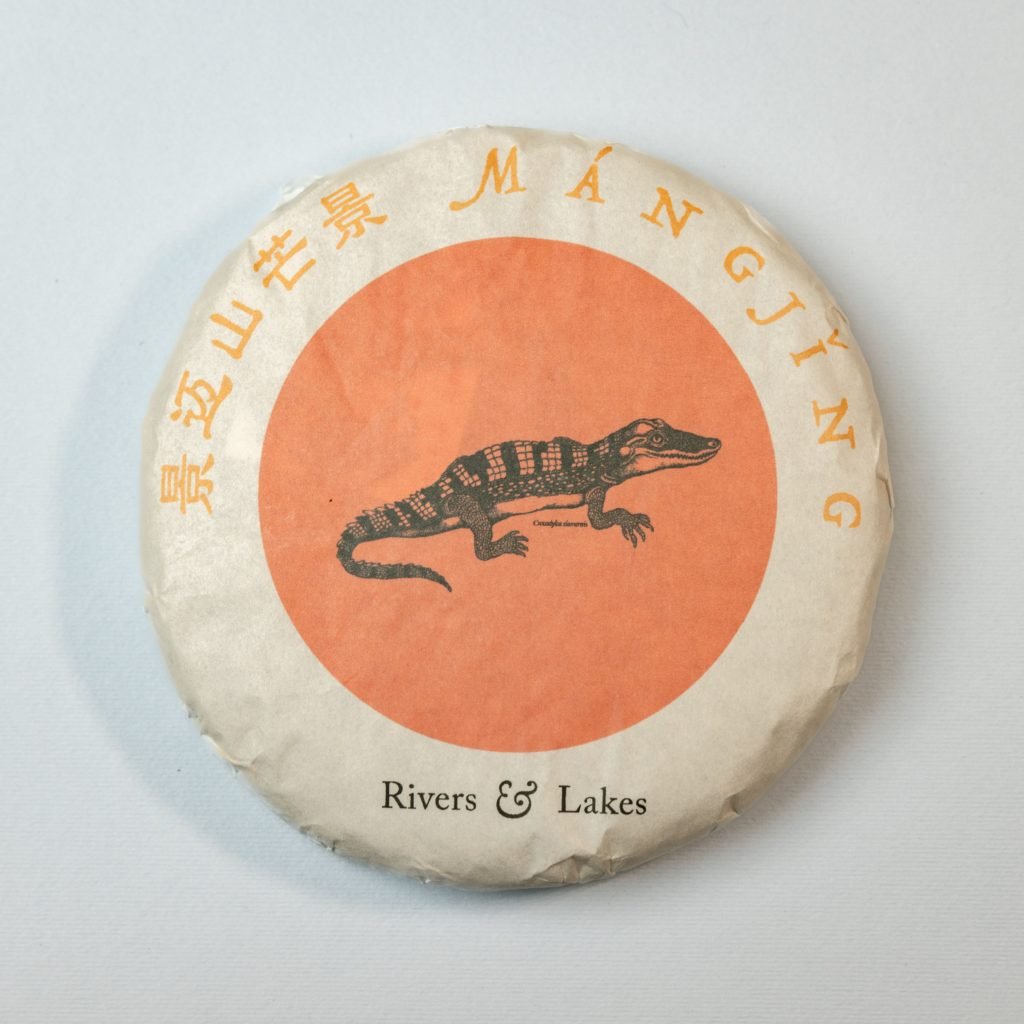
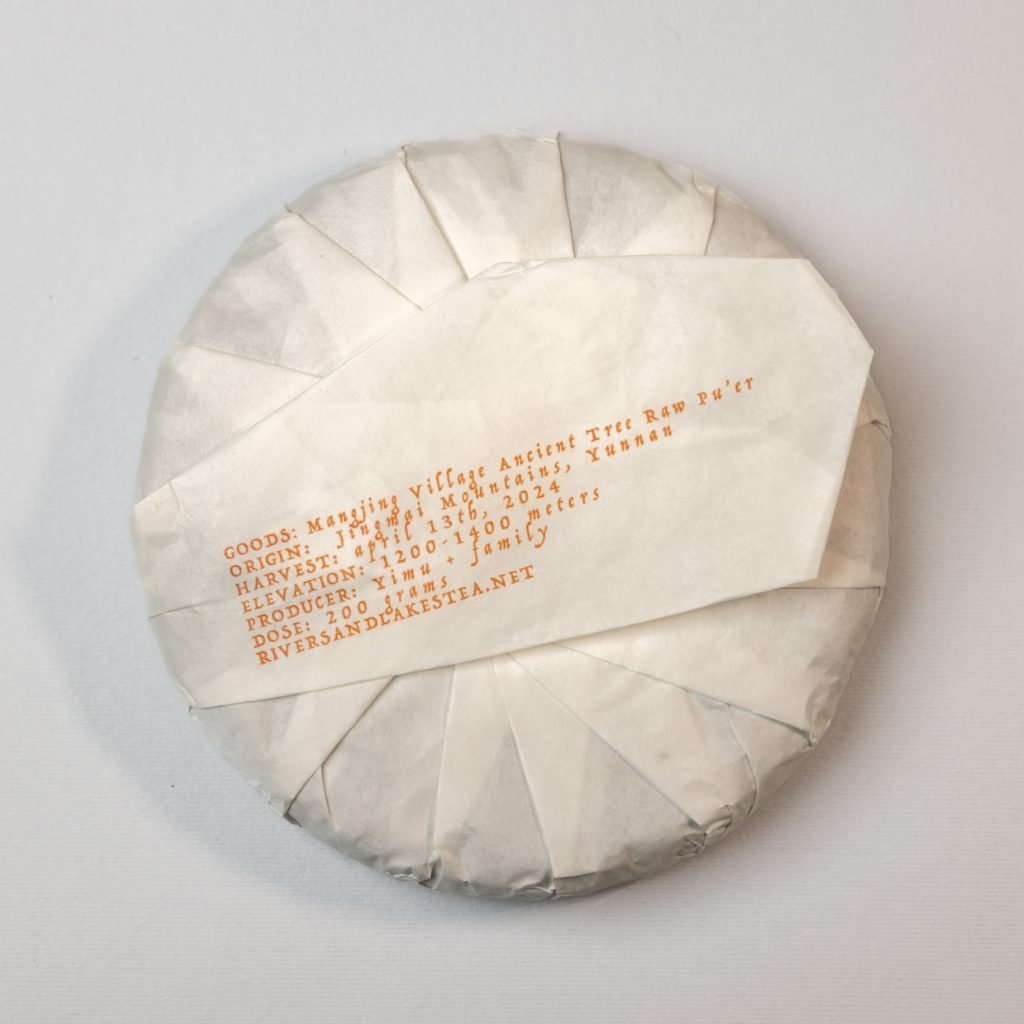
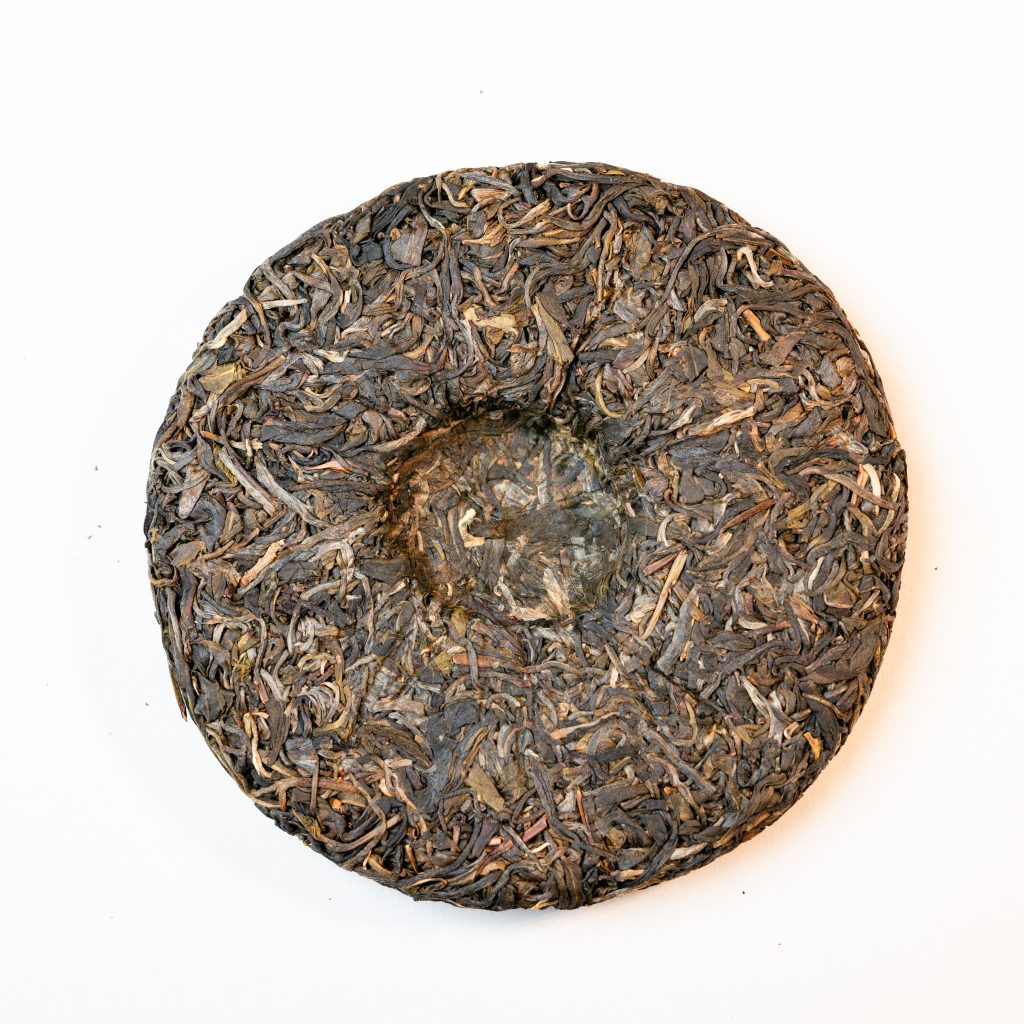
What an opportunity to drink something so ecologically special that you kinda feel braggadocio. It has a wonderful mouthfeel and a slight medicinal feeling. Worth drinking a bit then saving for later. Can’t wait to try it in a year or two if there is any left!